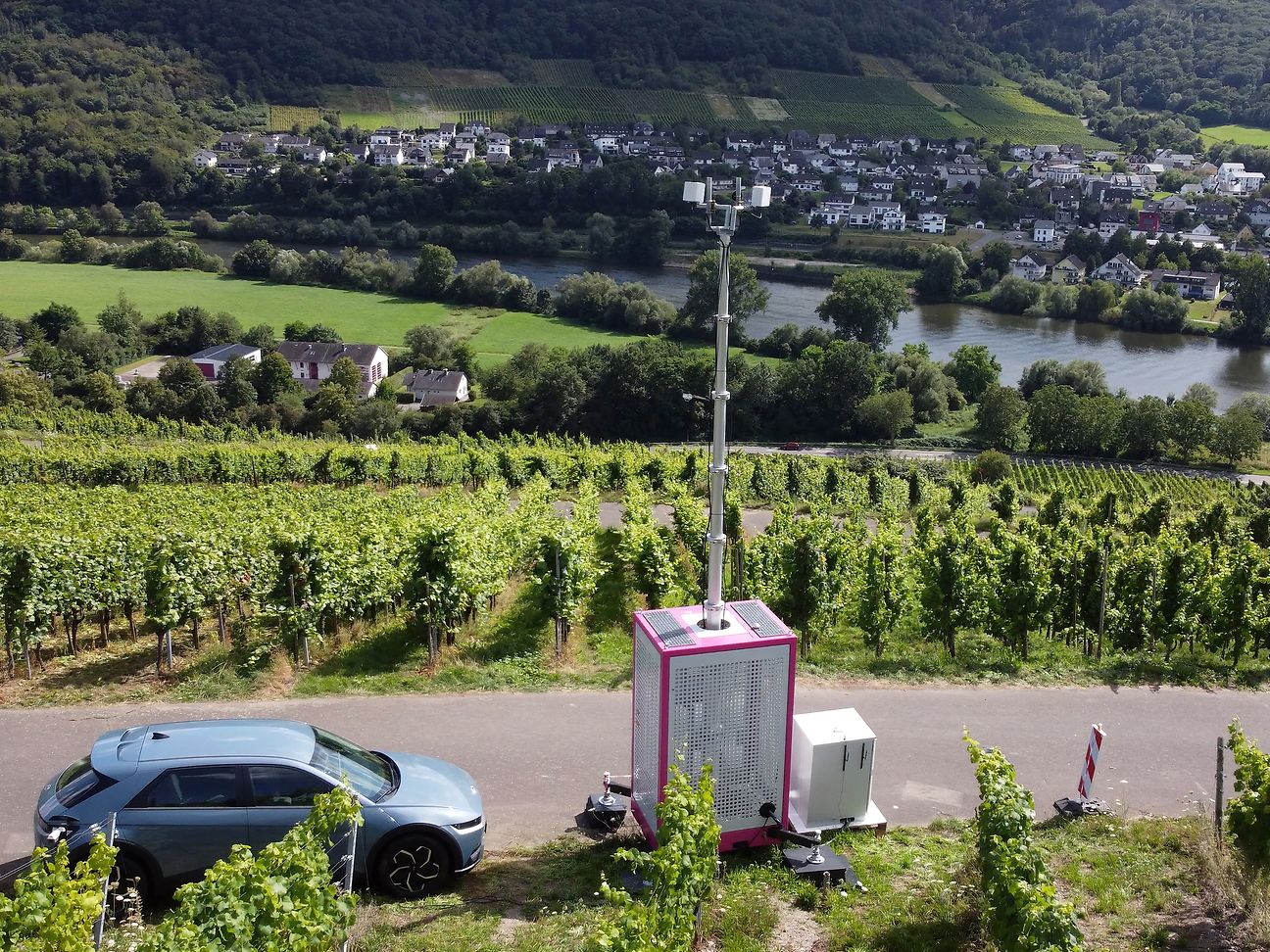In the heart of Germany's Moselle Valley, where steep vineyards have been cultivated for nearly 2,000 years, a technological revolution is underway. Deutsche Telekom's 5G-powered "Smart Vineyard" project is transforming the way wine is produced, addressing labor shortages and preserving a unique cultural landscape.
Tackling the Challenges
The Moselle Valley, renowned for its steep slopes and ancient winemaking traditions, faces significant challenges. Labor shortages and the risk of accidents on the steep terrain threaten the sustainability of the region's vineyards. The "Smarter Weinberg" project, funded by the German Federal Ministry for Digital and Transport, aims to address these issues by leveraging 5G technology for automation and digitalization.
5G-Powered Robotic Assistance
At the heart of the project is a 5G-equipped robot that navigates the vineyards autonomously, performing labor-intensive tasks like soil cultivation and leaf removal. Cameras mounted on the robot capture data about the vines and their surroundings, enabling real-time control of tools and providing valuable insights into leaf density, pest infestations, and ripening conditions.
Kilian Franzen, a winemaker at Weingut Franzen in Bremm, explains the benefits: "The robot supports us particularly with time-consuming and heavy work such as mulching or defoliation. With the time gained, we can use the few skilled workers we have sensibly in places where manual work still cannot be replaced."
Real-Time Data Processing with 5G
The 5G network, operating on dedicated industrial frequencies, provides the high bandwidth and low latency required for real-time data processing. This enables the robot to respond instantly to its environment, making precise adjustments to its movements and tools.
Professor Maria Wimmer of the University of Koblenz highlights the importance of 5G: "Especially for viticulture on steep slopes, not much research has been done in the field of automation so far. The robotics platform that we have developed in the project brings automation to the vineyard. But for automation to work, we need a powerful computer and a powerful network. And for that, a private 5G campus solution is essential."
A Sustainable and Mobile Solution
The project is committed to sustainability, with the robot and the 5G network operating emission-free. An electric car, capable of delivering power through its charging socket, supplies the network with energy. Furthermore, the 5G network is designed to be "nomadic," meaning it can move from one vineyard to another, ensuring optimal connectivity wherever it's needed.
Mathias Poeten, Head of Mobile Networks at Telekom, emphasizes the transformative power of 5G: "5G is revolutionizing viticulture. Telekom's 5G campus network creates the basis for this and is specially tailored to the needs of the robot in the vineyard. With our innovative solution in container format, we can ensure that the network migrates with the winegrowers in the future and thus always ensures the best connectivity."
Preserving Tradition through Innovation
The "Smarter Weinberg" project represents a powerful example of how technology can be harnessed to preserve tradition and address pressing challenges. By combining 5G connectivity, robotics, and artificial intelligence, this initiative is helping to secure the future of winemaking in the Moselle Valley and beyond.
